 W
WImperialism is a policy or ideology of extending the rule over peoples and other countries, for extending political and economic access, power and control, through employing hard power especially military force, but also soft power. While related to the concepts of colonialism and empire, imperialism is a distinct concept that can apply to other forms of expansion and many forms of government.
 W
WThe Clemenceau–Lloyd George Agreement of 1 December 1918 was a verbal agreement which modified the 1916 Sykes–Picot Agreement in respect to Palestine and the Mosul Vilayet. The latter component is also known as the Mosul cession. The agreement was between British and French Prime Ministers David Lloyd George and Georges Clemenceau, and took place at the French Embassy in London.
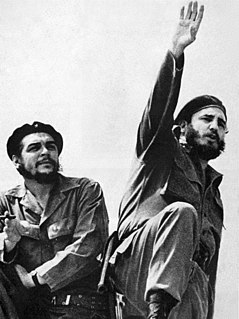 W
WThe aftermath of the Cuban Revolution is a period in Cuban history typically defined as starting in 1959 and ending in 1970. The period encompasses early domestic reforms, growing international tensions, and ending with the failure of the 1970 sugar harvest.
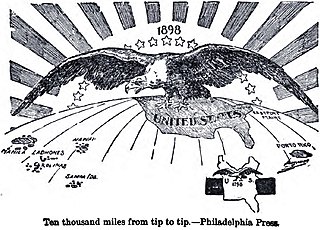 W
WAmerican imperialism consists of policies aimed at extending the political, economic, and cultural influence of the United States over areas beyond its boundaries. Depending on the commentator, it may include military conquest, gunboat diplomacy, unequal treaties, subsidization of preferred factions, economic penetration through private companies followed by intervention when those interests are threatened, or regime change.
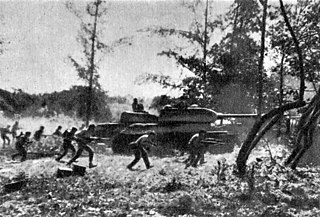 W
WThe Bay of Pigs invasion was a failed landing operation on the southwestern coast of Cuba in 1961 by Cuban exiles who opposed Fidel Castro's Cuban Revolution. Covertly financed and directed by the U.S. government, the operation took place at the height of the Cold War, and its failure led to major shifts in international relations between Cuba, the United States, and the Soviet Union.
 W
WThe bombardment of Algiers in 1683 was a French naval operation against the Regency of Algiers during the Franco-Algerian War of 1681-88. It led to the rescue of more than 100 French prisoners, in some cases after decades of captivity, but the great majority of Christian slaves in Algiers were not liberated.
 W
WThe British Empire was the dominions, colonies, protectorates, mandates, and other territories ruled or administered by the United Kingdom and its predecessor states. It began with the overseas possessions and trading posts established by England between the late 16th and early 18th centuries. At its height it was the largest empire in history and, for over a century, was the foremost global power. By 1913 the British Empire held sway over 412 million people, 23% of the world population at the time, and by 1920 it covered 35,500,000 km2 (13,700,000 sq mi), 24% of the Earth's total land area. As a result, its constitutional, legal, linguistic, and cultural legacy is widespread. At the peak of its power, the phrase "the empire on which the sun never sets" was often used to describe the British Empire as the Sun was always shining on at least one of its territories.
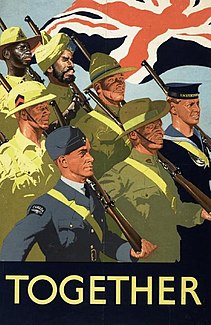 W
WWhen the United Kingdom declared war on Nazi Germany in September 1939 at the start of World War II, the UK controlled to varying degrees numerous crown colonies, protectorates and the Indian Empire. It also maintained unique political ties to four of the five independent Dominions—Australia, Canada, South Africa, and New Zealand—as co-members of the then "British Commonwealth". In 1939 the British Empire and the Commonwealth together comprised a global power, with direct or de facto political and economic control of 25% of the world's population, and of 30% of its land mass.
 W
WBritish foreign policy in the Middle East has involved multiple considerations, particularly over the last two and a half centuries. These included maintaining access to British India, blocking Russian or French threats to that access, protecting the Suez Canal, supporting the declining Ottoman Empire against Russian threats, guaranteeing an oil supply after 1900 from Middle East fields, protecting Egypt and other possessions in the Middle East, and enforcing Britain's naval role in the Mediterranean. The timeframe of major concern stretches from the 1770s when the Russian Empire began to dominate the Black Sea, down to the Suez Crisis of the mid-20th century and involvement in the Iraq War in the early 21st. These policies are an integral part of the history of the foreign relations of the United Kingdom.
 W
WA caliphate is an Islamic state under the leadership of an Islamic steward with the title of caliph, a person considered a politico-religious successor to the Islamic prophet Muhammad and a leader of the entire Muslim world (ummah). Historically, the caliphates were polities based on Islam which developed into multi-ethnic trans-national empires. During the medieval period, three major caliphates succeeded each other: the Rashidun Caliphate (632–661), the Umayyad Caliphate (661–750), and the Abbasid Caliphate (750–1258). In the fourth major caliphate, the Ottoman Caliphate, the rulers of the Ottoman Empire claimed caliphal authority from 1517. Throughout the history of Islam, a few other Muslim states, almost all hereditary monarchies such as the Mamluk Sultanate (Cairo) and Ayyubid Caliphate, have claimed to be caliphates.
 W
WCandour is a British far-right political magazine founded by A. K. Chesterton, appearing weekly from 1953 to 1960, and in to eight to ten issues per year by 1999. The magazine displayed a "stolidly conservative" stance under the leadership of Chesterton, who feared that open racial hatred would tarnish the magazine's reputation and tried to cultivate a more respectable, conservative image. After Chesterton's death in 1973, Candour was edited by Rosine de Bounevialle until her own death in 1999. Since that year, the magazine has appeared intermittently under editor-in-chief Colin Todd, with an associated website.
 W
WThe century of humiliation, also known as the hundred years of national humiliation, is the term used in China to describe the period of intervention and subjugation of the Chinese Empire and the Republic of China by Western powers, Russia and Japan in between 1839 and 1949.
 W
WChilean expansionism refers to the foreign policy of Chile to expand its territorial control over key strategic locations and economic resources as a means to ensure its national security and assert its power in South America. Chile's significant territorial acquisitions, which occurred mostly throughout the 19th century, paved the way for its emergence as one of the three most powerful and wealthiest states in South America during the 20th century. It also formed Chile's geopolitical and national identity as a tricontinental state and one of the countries with the longest coastlines in the world.
 W
WOver the last four thousand years, Chinese imperialism has been a central feature of the history of East Asia. Since the recovery of Chinese strength in the late 20th century, the issues involved have been of concern to China's neighbors to the east.
 W
WCultural imperialism, also called cultural colonialism, comprises the cultural aspects of imperialism. "Imperialism" here refers to the creation and maintenance of unequal relationships between civilizations, favoring a more powerful civilization. Thus, the cultural imperialism is the practice of promoting and imposing a culture, usually that of a politically powerful nation, over a less powerful society; in other words, the cultural hegemony of industrialized or politically and economically influential countries which determine general cultural values and standardize civilizations throughout the world. The term is employed especially in the fields of history, cultural studies, and postcolonial theory. It is usually used in a pejorative sense, often in conjunction with calls to reject such influence. Cultural imperialism may take various forms, such as an attitude, a formal policy, or military action, insofar as it reinforces cultural hegemony.
 W
WThe discovery doctrine, also called doctrine of discovery, provided a philosophical framework for Christian explorers, to lay claim to territories uninhabited by Christians. Under this belief, title to lands lay with the government whose subjects travelled to and occupied a territory whose inhabitants were not subjects of a European Christian monarch. The doctrine was strongly held by King Ferdinand and Queen Isabella of Spain who financed Columbus' first expedition to America. The Spanish monarchs were strongly backed on this by Pope Alexander VI, who confirmed their right of possession of all newly discovered lands in the Americas. He repeated what had been said by earlier Popes such as Nicholas V. As described by the Upstander Project,Two papal bulls, in particular, stand out: (1) Pope Nicholas V issued "Romanus Pontifex" in 1455, granting the Portuguese a monopoly of trade with Africa and authorizing the enslavement of local people; (2) Pope Alexander VI issued the Papal Bull “Inter Caetera” in 1493 to justify Christian European explorers’ claims on land and waterways they allegedly discovered, and promote Christian domination and superiority, and has been applied in Africa, Asia, Australia, New Zealand, and the Americas. The 1493 Papal decree aimed to justify Christian European explorers’ claims on land and waterways they allegedly discovered, and promote Christian domination and superiority, and has been applied in Africa, Asia, Australia, New Zealand, and the Americas. If an explorer proclaims to have discovered the land in the name of a Christian European monarch, plants a flag in its soil, and reports his “discovery” to the European rulers and returns to occupy it, the land is now his, even if someone else was there first.
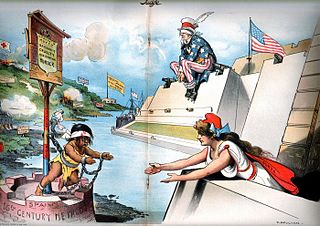 W
WThe Empire of Liberty is a theme developed first by Thomas Jefferson to identify the responsibility of the United States to spread freedom across the world. Jefferson saw the mission of the U.S. in terms of setting an example, expansion into western North America, and by intervention abroad. Major exponents of the theme have been Abraham Lincoln, Theodore Roosevelt, Woodrow Wilson, Franklin D. Roosevelt, Harry Truman, Ronald Reagan, Bill Clinton, and George W. Bush.
 W
WThe phrase "the empire on which the sun never sets" has been used to describe certain global empires that were so extensive that it seemed that at least one part of their territory was always in daylight. This grandiose statement is typically a hyperbolic boast of an empire's reach, but it has also been interpreted in a literal sense.
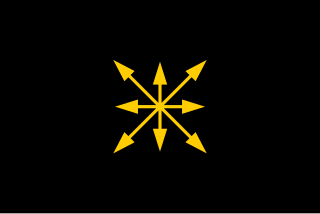 W
WThe Eurasian Youth Union is a Russian traditionalist anti-European political organization, the youth wing of the Eurasia Party headed by Aleksandr Dugin. The organization has branches in several countries. In 2011, the Government of Ukraine has branded the ECM as an extremist anti-Ukrainian organization, convicted of a string of vandalism offenses and banned it in Ukraine.
 W
WThe Herero Wars were a series of colonial wars between the German Empire and the Herero people of German South West Africa. They took place between 1904 and 1908.
 W
WInternational relations from 1648 to 1814 covers the major interactions of the nations of Europe, as well as the other continents, with emphasis on diplomacy, warfare, migration, and cultural interactions, from the Peace of Westphalia to the Congress of Vienna. It is followed by International relations of the Great Powers (1814–1919).
 W
WThe 1953 Iranian coup d'état, known in Iran as the 28 Mordad coup d'état, was the overthrow of the democratically elected Prime Minister Mohammad Mosaddegh in favour of strengthening the monarchical rule of the Shah, Mohammad Reza Pahlavi on 19 August 1953, orchestrated by the United States and the United Kingdom, and carried out by the Iranian military.
 W
WThe Iraq War was a protracted armed conflict that began in 2003 with the invasion of Iraq by a United States-led coalition that overthrew the government of Saddam Hussein. The conflict continued for much of the next decade as an insurgency emerged to oppose the occupying forces and the post-invasion Iraqi government. An estimated 151,000 to 1,033,000 Iraqis were killed in the first three to four years of conflict. US troops were officially withdrawn in 2011. However, following the spread of the Syrian Civil War and the territorial gains of the Islamic State of Iraq and the Levant (ISIL), the Obama administration decided to redeploy US forces to Iraq in 2014. Many former soldiers are employed by defense contractors and private military companies. The U.S. became re-involved in 2014 at the head of a new coalition; the insurgency and many dimensions of the civil armed conflict continue. The invasion occurred as part of the George W. Bush administration's War on Terror, following the September 11 attacks.
 W
WEthel Maud Tawse Jollie was a writer and political activist in Southern Rhodesia who was the first female parliamentarian in the British overseas empire.
 W
WLinguistic Imperialism is a book written by Robert Phillipson, research professor at Copenhagen Business School's Department of English, published in 1992 by Oxford University Press.
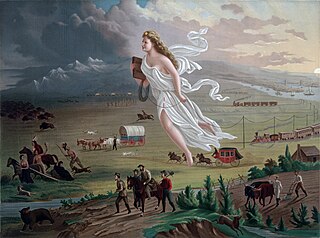 W
WManifest destiny was a widely held cultural belief in the 19th-century United States that American settlers were destined to expand across North America. There are three basic themes to manifest destiny:The special virtues of the American people and their institutions The mission of the United States to redeem and remake the west in the image of the agrarian East An irresistible destiny to accomplish this essential duty
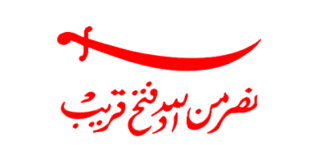 W
WThe Omani Empire was a maritime empire, vying with Portugal and Britain for influence in the Persian Gulf and Indian Ocean. At its peak in the 19th century, Omani influence or control extended across the Strait of Hormuz to modern-day Iran and Pakistan, and as far south as Cape Delgado. After the death of Said bin Sultan in 1856 the empire was divided into two sultanates, an African section ruled by Majid bin Said and an Asian section ruled by Thuwaini bin Said.
 W
WThe Ostend Manifesto, also known as the Ostend Circular, was a document written in 1854 that described the rationale for the United States to purchase Cuba from Spain while implying that the U.S. should declare war if Spain refused. Cuba's annexation had long been a goal of U.S. slaveholding expansionists. At the national level, American leaders had been satisfied to have the island remain in weak Spanish hands so long as it did not pass to a stronger power such as Britain or France. The Ostend Manifesto proposed a shift in foreign policy, justifying the use of force to seize Cuba in the name of national security. It resulted from debates over slavery in the United States, manifest destiny, and the Monroe Doctrine, as slaveholders sought new territory for the expansion of slavery.
 W
WPluricontinentalism was a geopolitical concept, positing that Portugal was a transcontinental country and a unitary nation-state consisting of continental Portugal and its overseas provinces.
 W
WCecil John Rhodes was a British mining magnate, and politician in southern Africa who served as Prime Minister of the Cape Colony from 1890-96. An ardent believer in British imperialism, Rhodes and his British South Africa Company founded the southern African territory of Rhodesia, which the company named after him in 1895. South Africa's Rhodes University is also named after him. Rhodes set up the provisions of the Rhodes Scholarship, which is funded by his estate. He also put much effort towards his vision of a Cape to Cairo Railway through British territory.
 W
WThe Sazonov–Paléologue Agreement was a 26 April 1916 letter from Russian Foreign minister Sergey Sazonov to French ambassador to Russia Maurice Paléologue regarding Western Armenia and the Anglo-French Sykes–Picot Agreement. The agreement for Russia influence over Western Armenia was given in return for Russian assent to the Sykes-Picot arrangement. The agreement took place on the first anniversary of the Treaty of London.
 W
WBéchir Sfar, , was a Tunisian nationalist campaigner and politician.
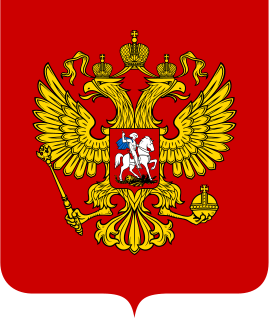 W
WThe Soviet Empire or the New Russian Empire are informal terms that has two meanings. In the narrow sense, it expresses a view in Western Sovietology that the Soviet Union as a state was a colonial empire. The onset of this interpretation is traditionally attributed to Richard Pipes's book The Formation of the Soviet Union (1954). In the wider sense, it refers to the country's perceived imperialist foreign policy during the Cold War. The other term is sometimes used since Vladimir Putin took office in 2000.
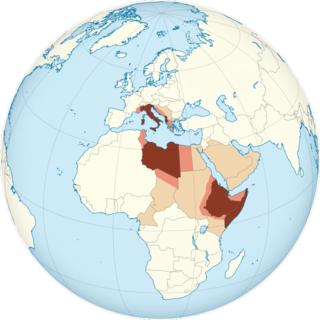 W
WSpazio vitale was the territorial expansionist concept of Italian Fascism. It was defined in universal terms as "that part of the globe over which extends either the vital requirements or expansionary impetus of a state with strong unitary organization which seeks to satisfy its needs by expanding beyond its national boundaries". It was analogous to the German Nazi Party's concept of Lebensraum.
 W
WThe Sykes–Picot Agreement was a 1916 secret treaty between the United Kingdom and France, with assent from the Russian Empire and the Kingdom of Italy, to define their mutually agreed spheres of influence and control in an eventual partition of the Ottoman Empire.
 W
WTerritorial changes of Russia happened by means of military conquest and by ideological and political unions in the course of over five centuries (1533–present).
 W
WThis timeline covers the main points of British foreign policy from 1485 to the early 21st century.
 W
WThe Vietnam War, also known as the Second Indochina War, and in Vietnam as the Resistance War Against America or simply the American War, was a conflict in Vietnam, Laos, and Cambodia from 1 November 1955 to the fall of Saigon on 30 April 1975. It was the second of the Indochina Wars and was officially fought between North Vietnam and South Vietnam. North Vietnam was supported by the Soviet Union, China, and other communist allies; South Vietnam was supported by the United States, South Korea, the Philippines, Australia, Thailand, and other anti-communist allies. The war, considered a Cold War-era proxy war by some, lasted 19 years, with direct U.S. involvement ending in 1973, and included the Laotian Civil War and the Cambodian Civil War, which ended with all three countries becoming communist in 1975.
 W
WThe War of 1812 was a conflict fought between the United States and its allies, and the United Kingdom of Great Britain and Ireland and its allies. It began when the United States declared war in June 1812 and ended in a stalemate when a peace treaty agreed to earlier was ratified by the United States in February 1815. While the war ended in a draw, both sides were happy with the outcome as the war ended, although indigenous nations are generally seen among historians as the real losers. Historians in Britain often see it as a minor theatre of the Napoleonic Wars while historians in North America see it as a war in its own right. From the outbreak of war with Napoleonic France in 1803, Britain had enforced a naval blockade to choke off neutral trade to France, which the United States contested as illegal under international law. To man the blockade, Britain pressed merchant sailors into the Royal Navy, including Americans. American sentiment grew increasingly hostile toward Britain due to incidents such as the 1807 Chesapeake–Leopard affair. The British were similarly outraged by the 1811 Little Belt affair, in which eleven British sailors died. Britain supplied arms to Native Americans, who raided European-American settlers on the American frontier, hindering the expansion of the United States and provoking resentment. Although the debate on whether the desire to annex some or all of British North America (Canada) contributed to the American decision to go to war, the reasoning for invasion was mainly strategical. President James Madison signed into law the declaration of war after heavy pressure from the War Hawks in the United States Congress.
 W
W"The White Man's Burden: The United States and the Philippine Islands" (1899), by Rudyard Kipling, is a poem about the Philippine–American War (1899–1902), which exhorts the United States to assume colonial control of the Filipino people and their country. Originally written to celebrate the Diamond Jubilee of Queen Victoria, the jingoistic poem was replaced with the sombre "Recessional" (1897), also a Kipling poem about empire.
 W
WAbdeljelil Zaouche, was a politician, reformer and campaigner in the Tunisian independence movement.